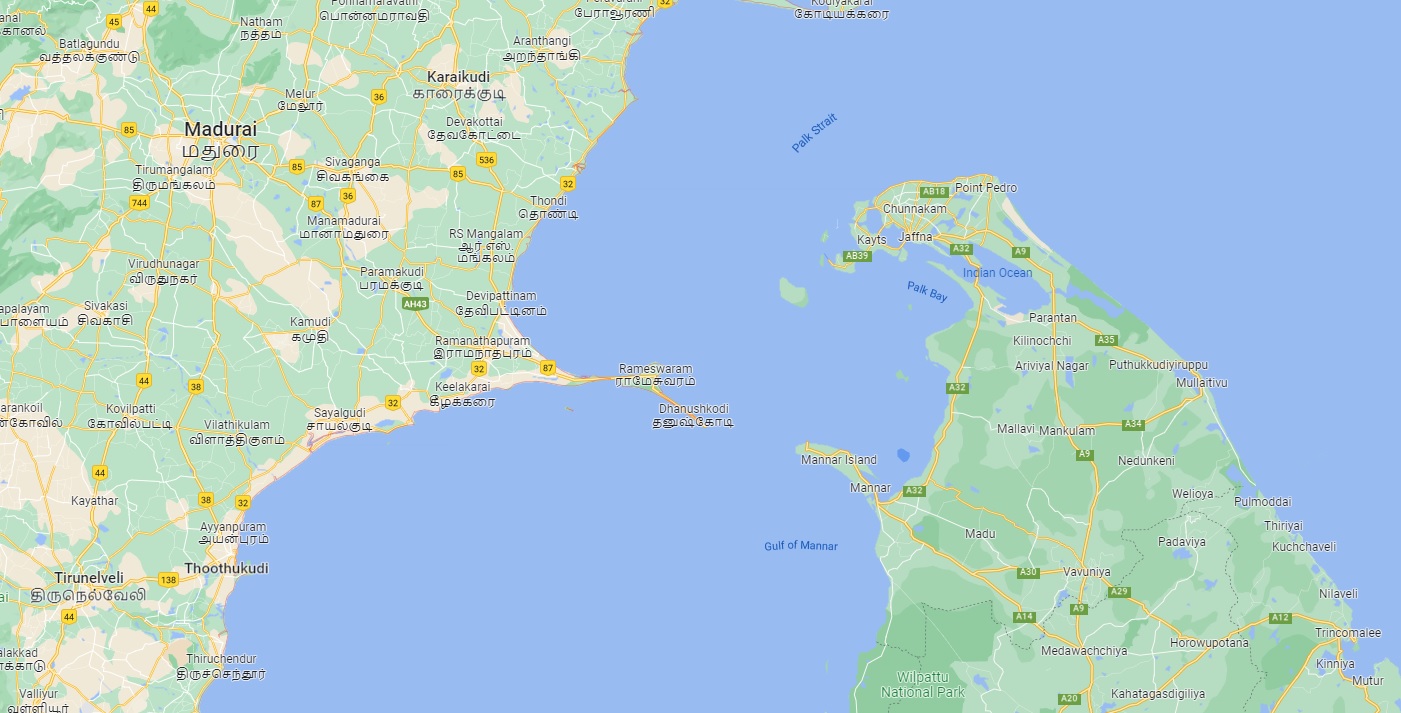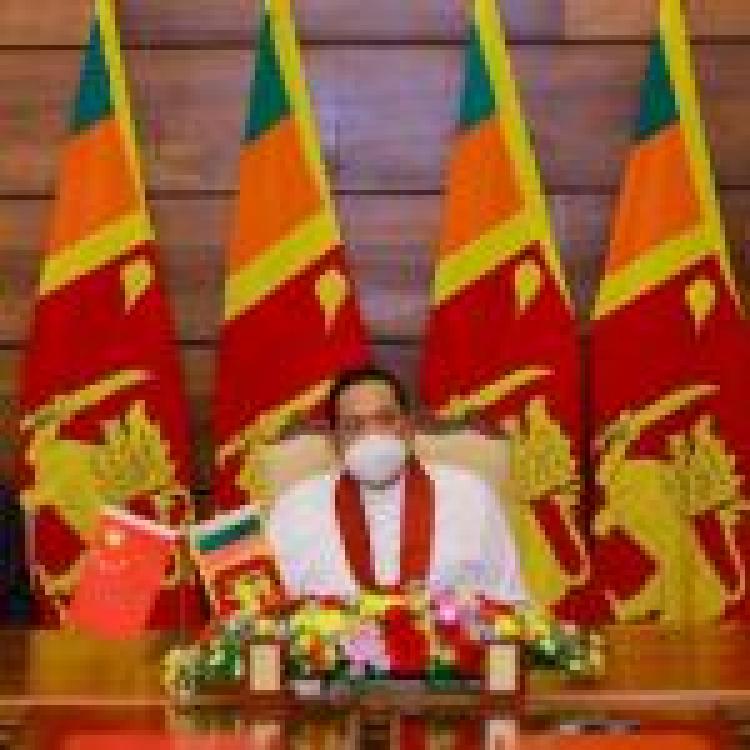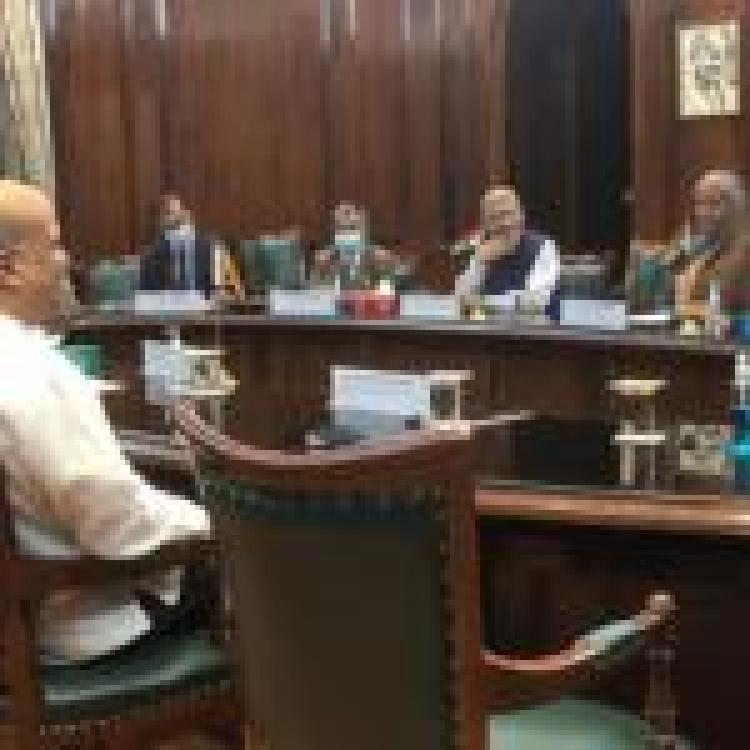
Image courtesty Google Maps
The Indian government has revived talks with Sri Lanka on linking the two countries’ electricity grids, a project that it has sought to carry out for several years, according to a report in Reuters.
Wasantha Perera, secretary of Sri Lanka's power ministry, confirmed that talks had taken places, stating "it is at very initial stages of discussion”.
The project had reported been brought up by New Delhi in March this year, as then Sri Lankan finance minister travelled to India to seek a USD $ 1 billion credit line. Cash-stricken Colombo has been reliant on its northern neighbour for much needed financial assistance as it battles one of its worst economic crises on record.
However, in exchange India has looked to expand several projects in the Tamil homeland in the North-East of the island, despite ongoing Sinhala hostility to an Indian presence on the island. Sinhala nationalists have previously prevented several Indian projects from taking place, part of a deeper ‘Indo-phobic’ sentiment across the South.
But with Sri Lanka desperate, several deals with India have now been inked, from setting up renewable energy plants in the Jaffna peninsula to a long-awaited agreement that will allow New Delhi to restore at least 75 oil tanks in the eastern city of Trincomalee.
The electricity grid project figured among the key objectives of a strategy paper issued by Sri Lanka's diplomatic mission in India last July, reports Reuters. In 2010 a pact was signed on feasibility studies for an undersea power cable linking the two shores, which span just some 40km across the Palk Strait.
“The project envisioned a transmission line that would run from Madurai in Tamil Nadu to Anduradhapura in north-central province of Sri Lanka,” reports The Week.






